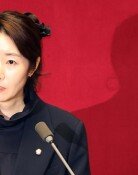Korea should seek currency alliance with U.S., Japan for currency war
Korea should seek currency alliance with U.S., Japan for currency war
Posted February. 17, 2016 07:20,
Updated February. 17, 2016 07:33
The Monetary Policy Committee of the central Bank of Korea (BOK) has left the key interest rate unchanged at 1.5 percent on Tuesday for the eighth consecutive month in consideration of the country's slowing exports, a weak recovery in the Eurozone and concerns over an exodus of foreign funds. Instead, the BOK has announced that it will supply an additional 9 trillion won (7.4 billion U.S. dollars) in funds to commercial banks for low-interest loans to small- and medium-sized businesses.
Lee Ju-yeol, head of the central bank, said that it was necessary to be careful about readjusting the benchmark rate under the current situation with high external uncertainties. The remark contrasts with his announcement late last year of a plan to maintain the monetary easing stance in 2016. His remark suggests that it is difficult to take only one way in the monetary policy in an exceptional situation where market money is seeking safety haven in treasury bonds in Japan despite negative interest rates.
The global trend is that every country is heading for a currency war, in which it seeks its currency's depreciation in an attempt to increase exports. Some experts say that such an approach is a revival of the beggar-thy-neighbor policy during the Great Depression era in the 1930s. Mario Draghi, president of the European Central Bank, also said Monday that he would seek further monetary stimulus in March. The Korea Economic Research Institute said at a forum on Tuesday that the BOK's 367.3 billion dollar foreign exchange reserves were "insufficient," urging the central bank to expand it to more than 400 billion dollars.
If the BOK acts rashly, it could become a target of international speculative funds. The seven members of the Monetary Policy Committee should start communicating with domestic and foreign financial markets. The Ministry of Strategy and Finance should establish a Seoul-Washington-Tokyo currency alliance by converting short-term external debts to long-term ones and resuming currency swaps with the U.S. and Japan to prepare for a currency war.







